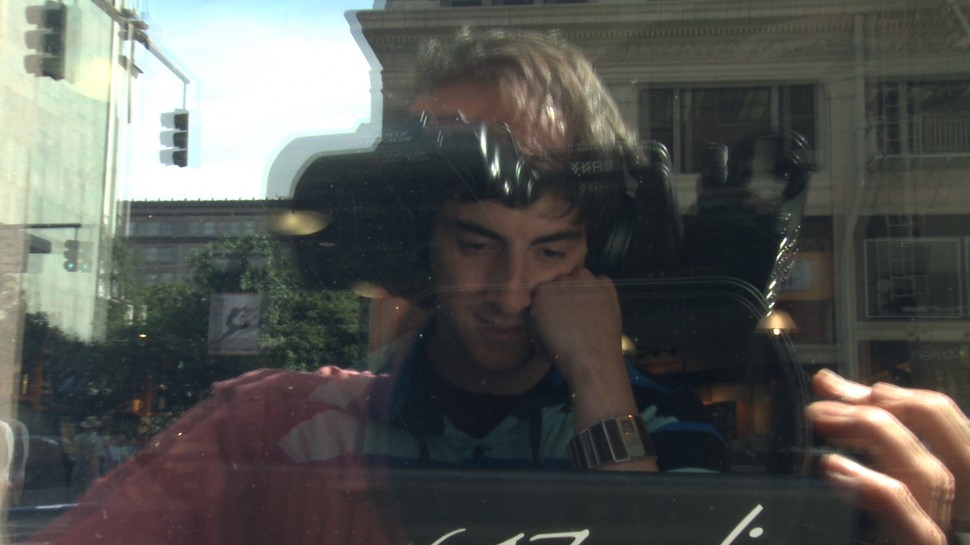
Photographic Memory
Screening on Film
US/France, 2011, digital video, color, 84 min.
English and French with English subtitles.
Photographic Memory is the newest installment in Ross McElwee’s personal-documentary saga, this one with a double focus. McElwee is at pains to reconnect with his twenty-something son Adrian from whom he feels alienated; and in an attempt to understand how Adrian’s life as a young man compares with his own, he returns to the tiny town of St. Quay on the Brittany coast, where he lived, made photographs, and had a love affair during the summer of 1972.
As in Sherman’s March and Time Indefinite, in Photographic Memory McElwee develops a complex Ross McElwee character, in this case whom viewers are likely to empathize with and resist. A few minutes into Photographic Memory, Ross films Adrian lying in bed, sipping coffee and working on his computer. Ross is frustrated with Adrian’s ignoring him and complains, “It’s sometimes hard to talk to you when you’re communicating with people via your computer; I feel like your attention is always divided among several technical tasks.” Ross then confides to the viewer in voice-over: “At times it’s so clear to me that he’s in a constant state of technological overload; I’m not sure how I would have handled it if all this had been available to me when I was his age.”
While it is easy for people of a certain generation (I include myself) to identify with McElwee’s frustration, the irony here is obvious. McElwee is filming Adrian during this moment: that is, his own attention is as divided as Adrian’s. Further, Ross is also involved in what will become a communication with people (us) via his video camera. Adrian is entirely aware of this, of course, since his young life has been regularly involved with his father’s filming, and while the McElwee-as-parent character doesn’t seem to see the irony, director McElwee surely does.
Ultimately, McElwee’s recognition that he needs to give Adrian the space to create a life for himself also sets Ross free; and it is at this point that McElwee’s somewhat detached, nostalgic reminiscences about his year in Brittany become re-embodied into new experiences. Photographic Memory becomes focused on two mysteries: why did the photographer he worked for that summer summarily fire him and whatever happened to Maud Corbel, the young woman with whom he had an affair?
McElwee’s work has always engaged issues of photographic representation and memory. The earliest installment of the cine-saga of McElwee’s life, Backyard (1984), begins with his comments about three photographs of Ross and his father, photographs that reveal Dr. McElwee’s apparent contempt for his son’s choice of filmmaking as an occupation. After nearly thirty years, the interplay of memory and the imaging of past and present in McElwee’s work has become quite complex. In Photographic Memory it is obvious that still and motion pictures obscure as much as they reveal, that at best they are merely clues to the history within which they were made, clues that sometimes reveal surprising, unforeseen dimensions of that history as time goes by.
McElwee’s best films have always been an engagement with family life, personal history, and photographic representation. In Photographic Memory McElwee is back in fine form. – Scott MacDonald, Visiting Professor of Visual and Environmental Studies, Harvard University and author of The Cambridge Turn in Documentary Filmmaking, forthcoming









